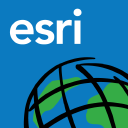
Software Development Engineer II - Computer Vision
Automate your job search with Sonara.
Submit 10x as many applications with less effort than one manual application.1
Reclaim your time by letting our AI handle the grunt work of job searching.
We continuously scan millions of openings to find your top matches.

Job Description
Overview
Esri's Professional Services is seeking a highly skilled Software Development Engineer II to join our team building advanced GIS software solutions. In this role, you will work on a system that leverages computer vision, machine learning, and AI to detect and extract real-world objects from 360-degree imagery, video, LiDAR point clouds, and oriented imagery. Your work will play a key role in creating authoritative system-of-record datasets, supporting critical infrastructure such as roadway networks for departments of transportation and public works, as well as indoor facility asset datasets for asset management and planning.
In this role, you will need a deep understanding of computer vision algorithms, geospatial data processing, and large-scale data management along with expertise in Python. You will collaborate closely with researchers and product engineers, bridging the gap between innovative research and production-ready software. Our team builds tools for geospatial data management, visualization, and analysis, empowering GIS professionals to solve complex real-world problems.
If you are passionate about geospatial technology, AI-driven data extraction, and developing scalable, high-performance solutions, this is an opportunity to work at the forefront of GIS innovation and make a meaningful impact on how organizations manage and understand their physical assets.
Responsibilities
- Research and implement computer vision and AI techniques for geospatial object extraction and change detection
- Work with state-of-the-art CV models (such as YOLO, SAM, DINO) and adapt them for GIS workflows
- Design and develop scalable software using computer vision against 360-degree imagery, video, LiDAR, and oriented imagery data
- Integrate and optimize Computer Vision and AI/ML models into production environments ensuring performance and accuracy
- Evaluate emerging AI/ML methods and frameworks relevant to GIS, CV, and Large Language Models
- Design, develop, and optimize research proof-of-concepts using Python
- Support the production integration of algorithms and models in C# and C++
- Ensure code quality, scalability, and maintainability through best practices and code reviews
- Contribute to system architecture and design discussions for performance-critical applications
- Collaborate with other developers and product engineers throughout the development process
- Work effectively in an Agile Scrum team environment
Requirements
- 2+ years of professional software development experience, with a focus on AI/ML and/or computer vision
- Experience with modern CV models such as YOLO, SAM, DINO, or equivalent frameworks
- Strong programming skills in Python, with experience using ML frameworks such as Scikit-learn, TensorFlow, PyTorch, or Keras
- Strong problem-solving and research skills; ability to quickly learn and adapt emerging technologies
- Proficiency in Python; experience with C#, exposure to C++
- Hands-on experience with Computer Vision and AI/ML, including:
- Feature detection, segmentation, extraction, and change detection
- Model evaluation and training
- Integration of models into production systems
- Experience in graphics programming (such as Gaming, GIS, or similar)
- Demonstrated ability to self-direct, with an eagerness to learn and grow
- Bachelor’s degree in Computer Science, Software Engineering, or STEM related field
Recommended Qualifications
- Master’s degree in Computer Science, Software Engineering, or STEM related field
- Proficiency in C++ for performance-critical applications
- Experience working with geospatial data or GIS or mapping platforms
- Familiarity with 3D data processing (LiDAR, point clouds)
- Knowledge of best practices in software design, testing, and version control
- Passion for applying AI/ML to real-world spatial problems
- Experience with natural language processing (LLMs) and generative models
- Familiarity with GPU programming (CUDA, OpenCL) and performance optimization
- Knowledge of 3D graphics frameworks (OpenGL, DirectX, etc.)
- Understanding of algorithms, data structures, and design patterns
#LI-DR5
#LI-Hybrid
Automate your job search with Sonara.
Submit 10x as many applications with less effort than one manual application.
